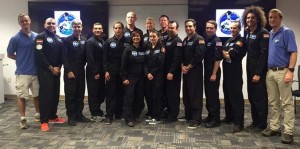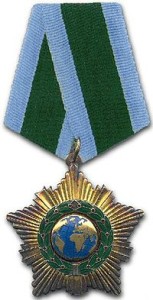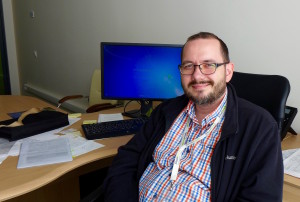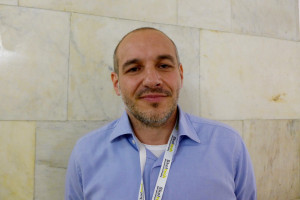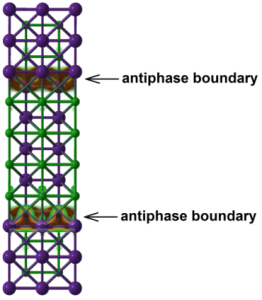One of the things that make Skoltech unique is the perception of commercialization as an integral part of its core, integrated with the education and the research. Traditionally there’s a gap between the research done in academic labs and the needs of the industry. At Skoltech we work to bridge the gap, and make the students take the market’s needs in account during and even prior to the research process. Continue reading
Skoltech is an international graduate research-focused university that was founded by the group of world-renowned scientists in 2011. Skoltech's curriculum focuses on technology and innovation, offering Master's programs in 11 technological disciplines. Students receive rigorous theoretical and practical training, design their own research projects, participate in internships and gain entrepreneurial skills in English. The faculty is comprised of current researchers with international accreditation and achievements.
Tag Archives: Skolkovo Institute of Science and Technology
From NASA to Skoltech and back
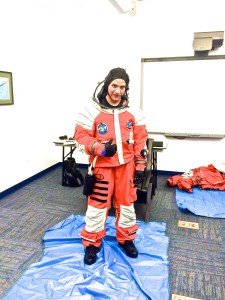 “I came to Skoltech because I wanted to do cooperation between the U.S. and Russia in the space sector” says Axel Garcia, a student in the Skoltech Space Center. Garcia is an example for the international-innovative-entrepreneurial nature of Skoltech. Originally from Puerto Rico, growing up in Florida, at the age of 23, Garcia already worked at NASA as an electrical engineer, received a Master’s degree from EPF Graduate School of engineering in France, and currently working on his second Master thesis in Skoltech.
“I came to Skoltech because I wanted to do cooperation between the U.S. and Russia in the space sector” says Axel Garcia, a student in the Skoltech Space Center. Garcia is an example for the international-innovative-entrepreneurial nature of Skoltech. Originally from Puerto Rico, growing up in Florida, at the age of 23, Garcia already worked at NASA as an electrical engineer, received a Master’s degree from EPF Graduate School of engineering in France, and currently working on his second Master thesis in Skoltech.
Recently Garcia went back to NASA, but not because of his work engagements there. He was one of the selected few to participate in the PoSSUM project, a non-profit suborbital research and education program devoted to the study of our upper atmosphere and the role it plays in the understanding of our global climate, held at the Embry-Riddle Aeronautical University in Daytona Beach, FL. We asked Garcia to tell us about this unique experience, and its connection to his cooperation aspirations.
Q: how did you manage to get the invitation to the program?
A: I had to apply, to write an essay and do an interview. It was a competitive thing. We have been taking courses remotely, two months before the project.
A: I was with a group of PhD students, from Egypt, Canada, the US, Portugal, Australia and India. They were all really smart, and they all wanted to become astronauts, so it was like a competition. For me the most amazing thing was to be with all these people. They were all scholars, and they all motivated me to keep into this program.
Q: What did you do during this part of the program?
A: Mostly it was how to perform science in the upper atmosphere. We were trained to go to space in commercial space flights in the future, and so we could be qualified to be the ones manipulating all the equipment and all the cameras, to do this tomography science – measuring clouds, to see how space weather is changing and so on. We had different equipment, we did aerobatic flights, and we experienced micro-gravity.
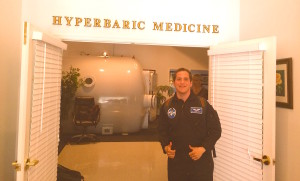 We also went into a hyperbaric chamber, which simulates the effects of high altitude on the human body. When you go up the pressure increases, and you’re not getting oxygen into your system, so people kind of faint and feel funny. Sometimes they start laughing without a reason. We were trying to see how our body is affected by this, if we can actually go through this hypoxia.
We also went into a hyperbaric chamber, which simulates the effects of high altitude on the human body. When you go up the pressure increases, and you’re not getting oxygen into your system, so people kind of faint and feel funny. Sometimes they start laughing without a reason. We were trying to see how our body is affected by this, if we can actually go through this hypoxia.
We also had a lot of courses about the atmosphere, about science, how to do analysis in the atmosphere, because we were training to become scientist astronauts, not pilots. In the end, naturally, we had a test.
Q: So you want to be an astronaut?
A: Yes! This program gave me qualification to become a scientist astronaut in the future. Not a NASA astronaut, but a commercial space flight astronaut for either Virgin Galactic or other private companies. My title now is “Astronaut candidate”, because I’m qualified to do the assignments they will need to do in the future in these private flights. I’m not an astronaut yet, I guess I will apply in the future.
But I also have this entrepreneurship spirit, and I want to make collaboration between the two countries. I believe that to achieve higher – to go to the moon again, to go to Mars – we need to collaborate together. It’s really expensive to go to space, so you really need to get organized and divide the work to different people.
Q: How do you connect this with the PoSSUM program?
A: One of the reasons I went there is because of Skoltech. I went to learn there about the equipment and to understand all the training that these astronauts go through, so that the entrepreneurship project I’m working with Prof. Rupert Gerzer now will become possible. We want to bring this mentality and these training activities into Russia.
Q: what can you tell us about this project?
A: I am very interested in human space flights and sub-orbital flights (a flight that you go into space for five minutes), which I think a lot of people are interested in, as tourists. We are trying to commercialize the training, to make a facility that many people can use to train like an astronaut. People who want to do parabolic flights and orbital flights, can use this facility to do their training with us. It will be cheaper for them.
Skoltech and The German Aerospace Center signed a cooperation agreement
Skolkovo Institute of Science and Technology (Skoltech) and The German Aerospace Center (DLR) signed on 13 June 2016 an agreement to strengthen scientific cooperation with each other. Continue reading
Skoltech’s Eurobot team reached top-16 in the final
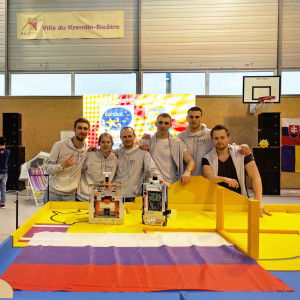 After winning the Russian national title, participating the international final in Paris and reaching the top-16 stage, Skoltech’s Eurobot team – reSET – lost to the Swiss team A.R.E.S at the 1/8 final. “This final loss was like a win”, said reSET’s team leader, head of Skoltech’s robotics lab, Prof. Dzmitry Tsetserukou.
After winning the Russian national title, participating the international final in Paris and reaching the top-16 stage, Skoltech’s Eurobot team – reSET – lost to the Swiss team A.R.E.S at the 1/8 final. “This final loss was like a win”, said reSET’s team leader, head of Skoltech’s robotics lab, Prof. Dzmitry Tsetserukou.
This year the Eurobot’s competition theme was “The Beach bots”. The participating robots had to complete theme related tasks – fishing, build sandcastles, and collect shells – within 90 seconds and earn as many points as possible. The finals took place in Paris, France. Among the participants there were teams from France, Belgium, Switzerland, Serbia, Romania, Hungary, the UK, Germany, Poland, Spain, Canada, Tunisia and of course the Russian federation. Each country could send more than one team.
On the first day of the competition, reSET got a nice 105-71 win over team TURAG from Germany on the second round. On the third round reSET lost to the Swiss team RCR 65-61, and got the 14th general place.
On the first round of the second day reSET lost to the French team ESEO – Angres 65 – 61, but had a wonderful 157-109 the next match, over the Swiss (again) team RI7. After the preliminary stages it turned out that the Skoltech team is between the top 16, which according to prof. Tsetserukou “It is the first time when new team comes to this stage”.
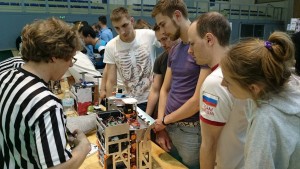 At the 1/8 final reSET met yet another Swiss team, this time it was team A.R.E.S, but lost 89-111. Prof. Tsetserukou describes what happened in the match: “The Swiss team blocked our robot, but our robot overpassed it with clever strategy. Unfortunately it could not bring sand-cubes to the designated area, but all the audience applauded us. We had a very clever robot and the most advanced”.
At the 1/8 final reSET met yet another Swiss team, this time it was team A.R.E.S, but lost 89-111. Prof. Tsetserukou describes what happened in the match: “The Swiss team blocked our robot, but our robot overpassed it with clever strategy. Unfortunately it could not bring sand-cubes to the designated area, but all the audience applauded us. We had a very clever robot and the most advanced”.
Oleg Shipitko stated on behalf of the reSET team: “We are quite happy, but we know that we could do better. We were quite unlucky on our way because in the randomly assigned pairs in qualification phase we didn’t have any easy opponents. Nevertheless we managed to get to the final and made our opponents very nervous there. We learned so many lessons about this competition and we will be much better prepared next year.
Also, we enjoyed sharing experience with other teams. It was a real pleasure for us that many teams with big experience were shocked by the level of technologies we used in our robots. In addition, we received many questions about Skoltech and how to apply to it. So, we expect to see familiar faces among next year’s students.
So, we are happy about the result but we are going to make it better.”
The final rank of reSET team was 13. We applaud the team, who is still the Russian champion, for the work they did and for their achievements. We also want to thank the team’s co-organizers – Skolkovo RoboCenter – and our sponsors: Phoenix Contact, Maxon motor, Rock flow dynamics and Aviton. We are looking forward to see next year’s Eurobot team at Skoltech. The theme is already known – Moon village.
Prof. Crawley will receive the Order of Friendship from RF President – “This is a great recognition of my work”

Professor Edward Crawley, the Founding President of the Skolkovo Institute of Science and Technology (Skoltech).
Russian President Vladimir Putin conferred the Order of Friendship to a group of foreign nationals. Among them was Professor Edward Crawley, the Founding President of the Skolkovo Institute of Science and Technology (Skoltech). The presidential decree states that Edward Crawley is awarded “for his great contribution and fruitful activity in the field of science and education.”
The Order of Friendship (Russian: Орден Дружбы – Orden Druzhby) is a state decoration of the Russian Federation, awarded to Russian and foreign nationals for special merit in strengthening peace, friendship, cooperation and understanding between nations, for fruitful work on the convergence and mutual enrichment of cultures of nations and peoples; for the active conservation, development and promotion of the cultural and historical heritage of Russia; for great contribution to the implementation of joint ventures with the Russian Federation, major economic projects and attracting investments into the economy of the Russian Federation; for broad charitable activities.
We asked Professor Crawley what this award means to him, and to share his thoughts with us:
Q: What does it mean for you to receive the friendship award?
A: Of course this is a tremendous honor, but I would say that the honor should really be shared with all of those who have participated in developing Skolkovo and Skoltech, with the professors, the staff and even the students. This a tremendous accomplishment, that all have participated in, to build this new university and the network in Russia.
Q: How did you get the news about this award?
A: I got it from vice president Sitnikov, over the phone. I had no expectations today that I will receive these news, so it’s even a greater surprise.
Q: You were determined from a young age to try to help the Soviets and the Americans work together in space. Do you think that this award is an official recognition of your efforts in this direction?
A: I think that such awards are always given for lifetime accomplishments and this one is particularly gratifying, because since the age of 15 I have had the intentions to try and bring together the Russian and the American efforts in science and in space in particular. This is a great recognition of my work there.
Q: The award is given to you for your contribution to education and fruitful activity in the field of science. In your opinion, what can and should Russia learn from foreign countries in this aspect?
A: it’s generally understood that in science and in education it’s important that we have open exchange of information and that we have international collaboration and cooperation. It is in this way that we’re both able to address the problems of society and economy, but also ensure a more stable world, where people have better understanding of other nations.
Edward Crawley and Pekka Viljakainen to receive friendship awards from Russian president
Russian President Vladimir Putin named two key figures at the Skolkovo Foundation among the foreign recipients of friendship awards on Wednesday. Continue reading
Skoltech Center for Energy Systems held its 2nd International Conference
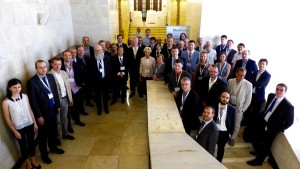 On May 30-31, the Skoltech Center for Energy Systems hosted its second international conference entitled: “Shaping research in integrated gas-, heat- and electric- energy infrastructures”. The conference was jointly organized with the International Institute for Energy Systems Integration (iiESI).
On May 30-31, the Skoltech Center for Energy Systems hosted its second international conference entitled: “Shaping research in integrated gas-, heat- and electric- energy infrastructures”. The conference was jointly organized with the International Institute for Energy Systems Integration (iiESI).
This conference is a continuation of the successful event that took place in June 2015, where the modern mathematical methods applied to energy systems were largely discussed. This year, the internationally invited experts from around the world shared their experiences and discussed the prospects for integration of thermal, gas and electric power systems.
The technical committee of the conference included prof. Janusz Bialek, Director of the Skoltech Center for Energy Systems, his colleagues: prof. Michael Chertkov and prof. Aldo Bischi, and prof. Mark O’Malley, Director of the Research Center for Electric Power, University College Dublin.
 During the first day and a half of the event ,the widely recognized scientists in the field from Russia, USA, Italy, Germany, Belgium, Denmark, UK, Ireland and Japan discussed the challenges and opportunities related to the integration of heat, gas and power infrastructures: Combined Cooling, Heat and Power (CCHP) units achieving higher efficiencies and lowering the environmental impact; fluctuating renewable energy sources as well as loads and prices; electric energy storage both conventional, e.g. electrochemical, and unconventional e.g. as synthetic fuels (hydrogen or synthetic methane) or as thermal energy via heat pumps; thermal energy storage both via buildings inertia and via dedicated heat storage tanks integrated in the district heating network; how to deal with emergencies and be sure to operate in a safe interval.
During the first day and a half of the event ,the widely recognized scientists in the field from Russia, USA, Italy, Germany, Belgium, Denmark, UK, Ireland and Japan discussed the challenges and opportunities related to the integration of heat, gas and power infrastructures: Combined Cooling, Heat and Power (CCHP) units achieving higher efficiencies and lowering the environmental impact; fluctuating renewable energy sources as well as loads and prices; electric energy storage both conventional, e.g. electrochemical, and unconventional e.g. as synthetic fuels (hydrogen or synthetic methane) or as thermal energy via heat pumps; thermal energy storage both via buildings inertia and via dedicated heat storage tanks integrated in the district heating network; how to deal with emergencies and be sure to operate in a safe interval.
 The 2nd half of the second conference day was devoted to discussion of the techno-economic aspects and integrated energy infrastructures practical challenges from industrial point of view. The R&D Center of Federal Grid Company presented their research activities as well as the multi-utility company IREN (Italy). IREN is active in more than ten EU projects and brought a real world example from the Turin district heating network integration with advanced heat storage configurations and consequent power plants flexibilization with emissions reduction. A representative from DNV GL (USA) gave a talk on modeling of gas compression station. Nomura Research Institute (Japan) and University of Bologna (Italy) spinoff, OPTIT were also present; the latter developing software for distributed power generation optimization. Also the non-commercial Association “NP Market Council”, the Design and Analytical Company “LORES”, the startup “Thermal Motors” LLC (co-founded by Skoltech student Dmitry Smirnov) and their colleagues from the Italian AB Gruppo, which will soon open an office in Moscow, participated in the so-called round table discussion to voice the existing barriers and opted potential solutions in achieving the full scale energy systems integration. The conference participants expressed their great interest in this area, highlighting its great practical importance.
The 2nd half of the second conference day was devoted to discussion of the techno-economic aspects and integrated energy infrastructures practical challenges from industrial point of view. The R&D Center of Federal Grid Company presented their research activities as well as the multi-utility company IREN (Italy). IREN is active in more than ten EU projects and brought a real world example from the Turin district heating network integration with advanced heat storage configurations and consequent power plants flexibilization with emissions reduction. A representative from DNV GL (USA) gave a talk on modeling of gas compression station. Nomura Research Institute (Japan) and University of Bologna (Italy) spinoff, OPTIT were also present; the latter developing software for distributed power generation optimization. Also the non-commercial Association “NP Market Council”, the Design and Analytical Company “LORES”, the startup “Thermal Motors” LLC (co-founded by Skoltech student Dmitry Smirnov) and their colleagues from the Italian AB Gruppo, which will soon open an office in Moscow, participated in the so-called round table discussion to voice the existing barriers and opted potential solutions in achieving the full scale energy systems integration. The conference participants expressed their great interest in this area, highlighting its great practical importance.
Professor Alexander Ustinov, Deputy Director of the Skoltech Center for Energy Systems: “For us, the conference is of interest because by it means we are implementing one of the Skoltech functions – attracting the international expertise. This year we were able to assemble the world’s leading experts in the field of energy systems. Moreover, not only theoreticians, but also industry professionals with practical experience. There were interesting reports made by colleagues from Denmark, USA, Italy and Japan. So, the experience of creation of small-scale integrated power systems with the use of local resources, shared by the colleagues from Europe, which may look as far from us at first glance is, in fact, relevant to a number of isolated settlements in Yakutia and the Far East.
Participation of the Russian companies’ representatives in the industrial part of the conference, which can be viewed as both the consumers of technologies and developers of the unique solutions, allowed us to get a clearer picture of the landscape that exists today in the world and a place in the development of integrated energy systems, which belongs to Russia. The industrial program of the conference, in addition to the mutual acquaintance with experience, is valuable because of making contacts that could lead to joint projects. For Skoltech, this conference is interesting by the fact that we are bringing expertise and funds. Our University is a good partner to enter to the Russian market for our foreign partners.”
Professor. Vittorio Verda, Polytechnic University Torino, Italy: “The field of my interests is design and modeling of district heating areas, including solutions in the field of thermal energy storage. This subject is very well developed in Russia and is important for me to share my knowledge in this field and to get acquainted with the opinion of colleagues. One could hardly find another such opportunity to meet in one place with a concentration of leading experts from the academic and industry practitioners and engineers. It is a good platform for the exchange of ideas and the emergence of joint research plans. For example, in the field of simulation of gas and electricity networks. If we talk about the fact that it was particularly interesting to me, it is, of course, attention and action that is paid to the reliability of the functioning of Russian district heating systems – we in the Mediterranean region do not have such developed and reliable systems, and we found here an interesting experience and good prospects for cooperation.”
According to Vladimir Shkatov, Deputy Chairman of the Board of the Association “Non-Commercial Partnership Market Council on the organization of an effective system of electric power wholesale and retail trade and power”: “It is obvious that the current state of energy puts on the agenda the issue of integration, since the division of systems is very expensive. Speaking of integration, we mean that it is desirable to design and operate the support systems (heat, gas, elector, water supply, transport and so on) on the basis of a common approach to the operation and design. At some point in time of the 1970’s, we have done just that. Now the question is more efficient use of all types of energy, synergy is particularly urgent. And this decision is no longer a technological aspect, as it was in the USSR, and the aspect related to the business and political components. For us, this conference is interesting because of the fact that there have been discussed both technical and business aspects of solutions to this problem. Besides, it is always interesting to look and hear the international experience. “
New metallic two-dimensional salts were discovered
In the end of 2013, it was shown by combination of theory and experiment that at elevated pressure, numerous compounds forbidden by classical chemistry become stable. This was proven for the classical example of a simple and well-understood system: Na-Cl, where such bizarre compounds as Na3Cl and NaCl7 were discovered. Since then, the list of “forbidden” compounds stabilized by pressure rapidly grew.
In their new work, the same team of theorists (Weiwei Zhang, the lead author, formerly a visiting scholar to Prof. Oganov’s laboratory, now Professor at China Agricultural University, and Artem R. Oganov, the project leader and Professor at Skolkovo Institute of Science and Technology (Russia), Stony Brook University (USA)) and MPTI (Russia) and experimentalists (Alex Goncharov, Sergey Lobanov and Elissaios Stavrou from Carnegie Institution of Washington (USA)) took on a related system, K-Cl, and found even greater variety of “forbidden” compounds stabilized by pressure, including K3Cl, K2Cl, K3Cl2, K4Cl3, K5Cl4, K3Cl5, KCl3, KCl7. All of these compounds (except KCl3 phases) are metallic, while classical chemistry predicts that potassium chlorides can only be ionic. These compounds were first predicted using Oganov’s evolutionary algorithm USPEX, and then confirmed in Goncharov’s laboratory using high-pressure experiments in diamond anvil cells.
Two more surprises were uncovered. First, it was predicted and then experimentally proven that previously unknown compound KCl3 can exist at nearly-ambient conditions. Secondly, a whole family of two-dimensional metallic compounds was discovered, with structures similar to normal KCl, but with an extra atomic layer of K atoms, along which electrical current can pass (see Figure below).
“Working on Na-Cl and K-Cl compounds was very exciting. I knew we are exploring the limits of chemical intuition, but was surprised by how far beyond it the results turned out to be”, says Prof. Zhang.
“If simple systems like Na-Cl or K-Cl show such complex and counterintuitive chemistry, it only means that there is a lot about chemistry that remains to be discovered and understood”, says Prof. Oganov.
“This work shows just how powerful the modern theory is. When we started working together, I was very skeptical about these crazy predictions made by USPEX method, but as we went on, was shocked by just how reliable these predictions are, no matter how crazy they appear at first”, say Dr. Lobanov and Prof. Goncharov.
Results of the study were published in the journal Scientific Reports of Nature Publishing Group.
Reference: Zhang W.W., Oganov A.R., Zhu Q., Lobanov S., Stavrou E., Goncharov A.F. (2016). Stability of numerous novel potassium chlorides at high pressure. Sci. Rep., XXXX.
* The Skolkovo Institute of Science and Technology (Skoltech) is a private graduate research university in Skolkovo, Russia, a suburb of Moscow. Established in 2011 in collaboration with MIT, Skoltech educates global leaders in innovation, advances scientific knowledge, and fosters new technologies to address critical issues facing Russia and the world. Applying international research and educational models, the university integrates the best Russian scientific traditions with twenty-first century entrepreneurship and innovation.
Contact information:
Skoltech Communications
+7 (495) 280 14 81
